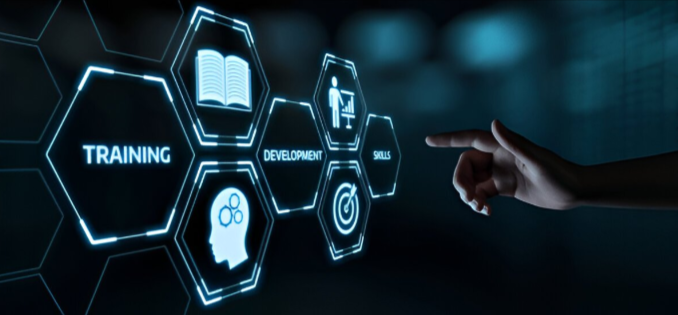The education landscape in Canada is undergoing a significant transformation, fueled by the burgeoning influence of Artificial Intelligence (AI). From personalized learning platforms to automated grading systems, AI is poised to revolutionize the way we teach and learn. But before we dive headfirst into the possibilities, let’s explore both the potential benefits and challenges associated with this exciting technological shift.
Personalized Learning Gets a Boost:
One of the most promising applications of AI in education is personalized learning. Traditional classrooms often struggle to cater to the diverse learning styles and paces of individual students. AI-powered platforms can create customized learning experiences by analyzing student data, including past performance, strengths, and weaknesses. These platforms can then tailor content, suggest learning pathways, and provide real-time feedback, fostering a more engaging and effective learning experience.
The Power of Intelligent Tutors
Imagine a tireless, always-available tutor who can answer your questions 24/7. AI-powered tutors hold immense potential to supplement traditional classroom instruction. These virtual tutors can provide targeted support, explain complex concepts in different ways, and offer immediate feedback on assignments. This can be particularly beneficial for students who require additional support or prefer a more self-directed learning approach.
Automated Grading with a Human Touch
Grading essays and exams can be a time-consuming task for educators. AI-powered grading systems can alleviate this burden, freeing up teachers’ time to focus on more personalized interactions with students. These systems can analyze student responses, identify common errors, and provide automated feedback. However, it’s crucial to remember that AI cannot replace the human touch. Educators should utilize AI as a tool to identify areas needing reinforcement, while reserving the nuanced feedback and encouragement for themselves.
Challenges and Considerations:
Despite the exciting possibilities, the integration of AI in education doesn’t come without challenges. One major concern is potential bias within AI algorithms. These algorithms are trained on existing data sets, which may inadvertently perpetuate biases based on race, gender, or socioeconomic background. Mitigating bias requires careful selection of training data sets and ongoing monitoring of the algorithms’ outputs.
Another concern is the potential for AI to dehumanize the learning experience. While AI offers valuable tools, it cannot replace the crucial role of educators in fostering critical thinking, creativity, and social-emotional learning. Educators must remain at the forefront of the learning process, utilizing AI to augment, not replace, their expertise.
The Canadian Landscape:
Canada boasts a vibrant EdTech ecosystem with several innovative companies developing AI-powered learning solutions. Universities like the University of Toronto and the University of British Columbia are at the forefront of research in this area. However, there’s a need for continued investment in EdTech infrastructure and professional development for educators to ensure they’re equipped to utilize these technologies effectively.
The Road Ahead:
The rise of AI in education presents both opportunities and challenges for Canada. By embracing this technology strategically, while addressing potential pitfalls, we can create a more personalized, engaging, and effective learning environment for all students. Collaborating between educators, policymakers, and AI developers will be crucial in shaping the future of AI-powered education in Canada.
About the Author:
Pritish Kumar Halder is a Canadian content writer and blogger with a keen interest in the intersection of technology and education. He believes AI can be a powerful tool for enhancing learning, but advocates for its thoughtful implementation with a focus on human-centered education.







